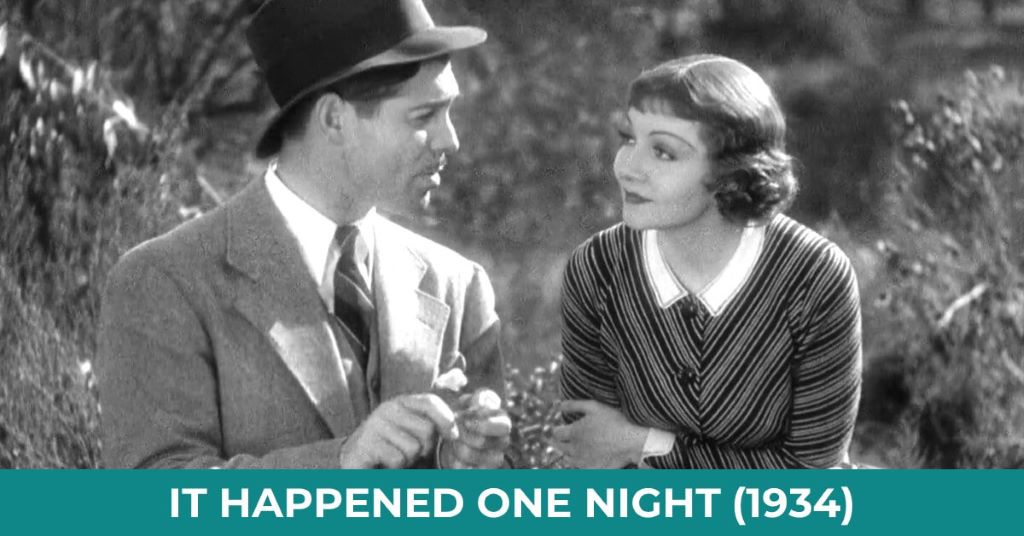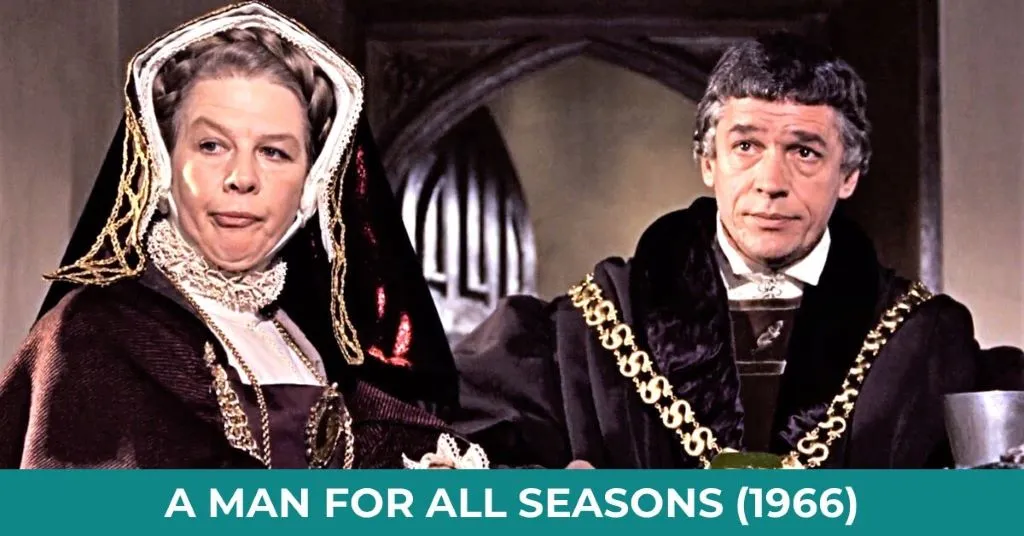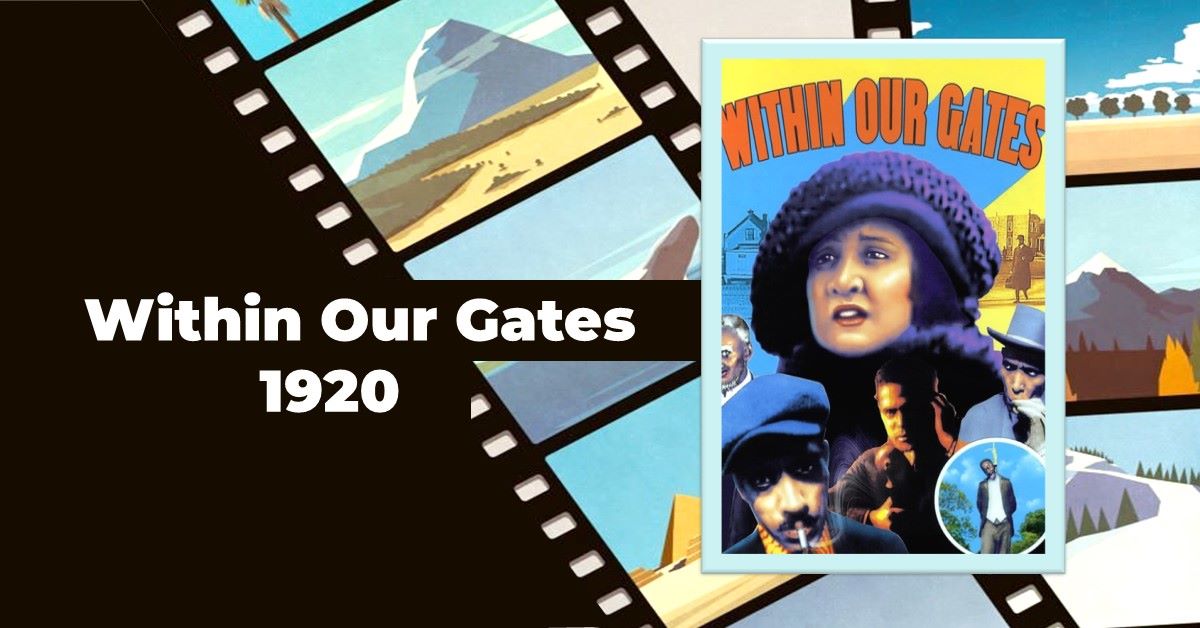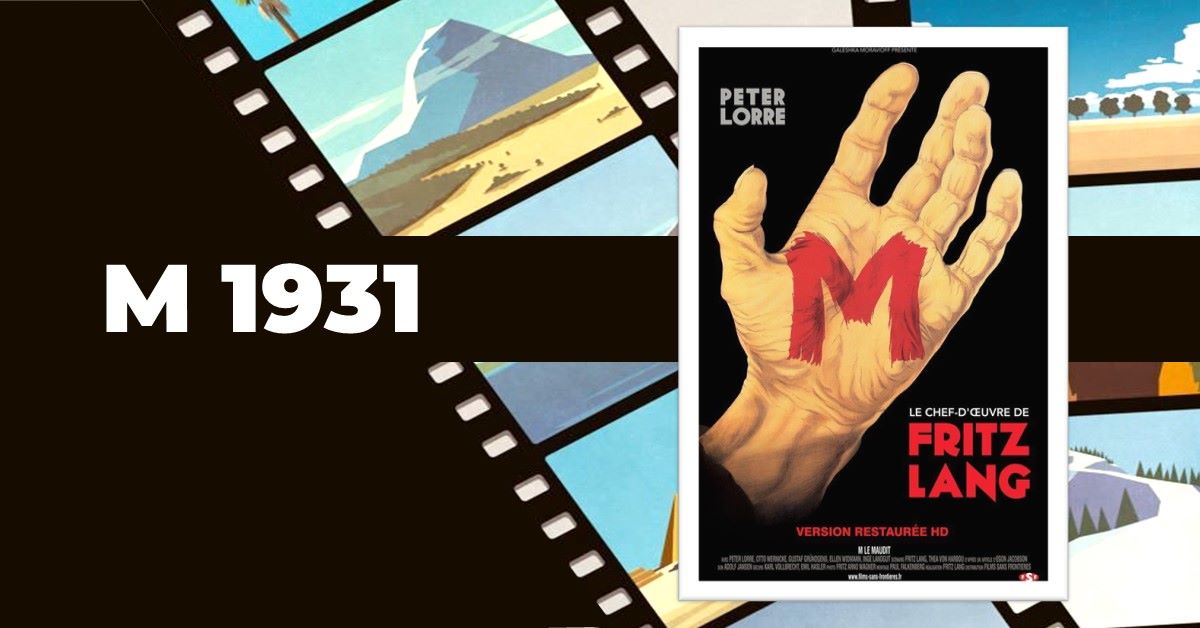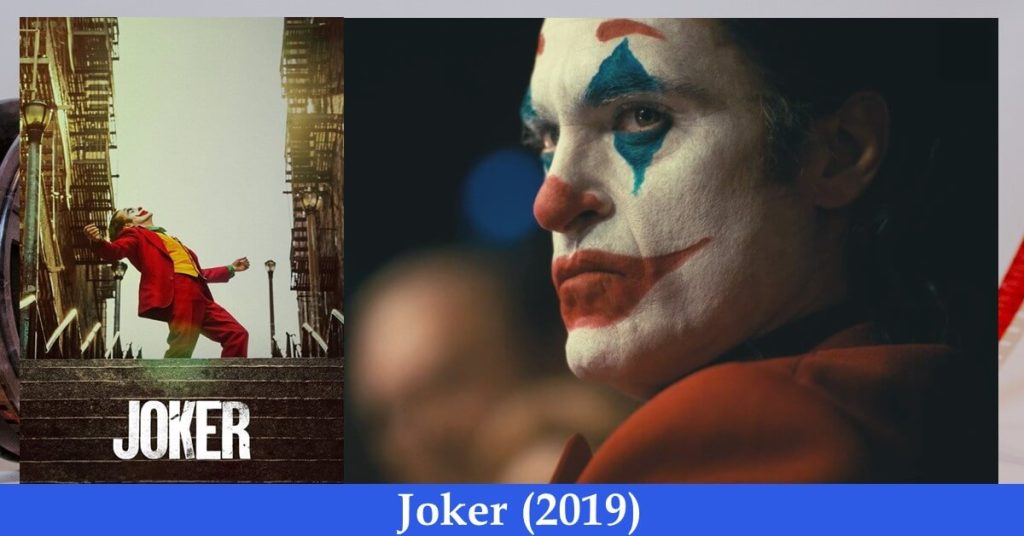Last updated on November 5th, 2023 at 09:14 am
It Happened One Night is a 1934 romantic comedy that tells the story of Ellie Andrews, a spoiled heiress who runs away from her domineering father to elope with her lover, and her attraction towards a just fired journalist, Peter Warne, whom she met along the way.
Both of them intended to take advantage of each other. Peter agreed to take her to New York so he can make a scoop and get back his job while she just wanted to unite with her husband to consummate their marriage.
Produced during the Great Depression, It Happened One Night encompasses parental oppression, the spoiled character of rich kids, power struggle, the hunger of the people and the status consciousness of the people of the society. Though the two befriended each other purely for personal motives, their comedic mishaps and misunderstandings regarding personal differences ultimately led to the blossoming of romance.
Of the Snowball genre—the comedy genre films feature silly and often amusing kinds of heroes and heroin and their unacceptable behaviour, which also denotes “a sense of confusion about romance and human relations”—the film starred Clark Gable as Peter Warne and Claudette Colbert as Ellen Andrews, It Happened One Night is one of Best Pictures of Hollywood that won five Academy Awards, one of the 100 best films of American Film Institute, included in the Complete National Film Registry Listing of Library of Congress in 1993, one of 1001 must watch films before death and one of the 101 best of 100 years on my watch list.
Synopsis: It Happened One Night
The story begins with the rebellion of heiress Ellen (Ellie) Andrews against her father, who opposes her secret marriage to a wealthy pilot, King Westley (Jameson Thomas). Mr Andrews despises Westley as a “fake,” so he has virtually abducted his daughter and confined her to his yacht in Florida to prevent her from joining her husband in New York to consummate the marriage.
Ellie escaped from the yacht as her father slapped her on account of refusing to eat anything if he did not let her go by jumping overboard and sneaking aboard a Greyhound bus to head not New York to reunite with her husband.
Ruined and protected, Ellie happens to be a wretched traveller, but on the bus, she accidentally ran into a just-fired journalist, Peter Warne. Lacked seats, they had to share one seat. Despite his contempt for the wealthy Ellie, Peter offers to get her to New York so he can publish the story of the run-away heiress ahead of any to regain his job.
The journey of Ellie and Peter by bus from Florida to New York takes place over three days but, more importantly, three nights that mark the milestones in their relationship. On the first night, the bus is stranded amid heavy rain and, for lack of money, they were required to spend the night in the same motel room.
Peter registered the room as husband and wife, and inside the room, he hangs a blanket between the beds on a rope making a partition, which he called the “walls of Jericho”– to preserve their privacy, respectability, modesty, and – quite honestly – Ellie’s virginity.
On the second night, they fled from the bus, because a fellow passenger recognised Ellie via newspaper, to a hayfield isolating themselves under the stars and growing attraction to each other. When expressed her hunger, he stole some carrots from somewhere which she refused to eat raw.
The next day they hitchhiked and rented a room in a motel. However, by the time she read in the newspaper that her father agrees to her marry King Westley and promised not to interfere if she returns home without Peter knowing.
The third night, however, marks the turning point of the story. Again, sharing a motel room separated by a blanket, they are only a few hours from New York and Ellie’s return to her husband. Both are, obviously, depressed about this.
She expressed her love for him and wanted to get away with him to the island Pacific that Peter talked about, where she wished to take his beloved who is real and alive and who would jump in the serf and love it as he, and where nights and water all become one, where stars are so close overhead.
But instead of kissing, he sent her away to her bed causing her a sob. Peter realizes he cannot marry Ellie in his penniless state, so he steals away to New York to write up the new scoop – the heiress decides to marry a journalist! – intending to be back before Ellen wakes up.
However, when Peter left her asleep for the New York Mail office, Ellie awakes to find him gone, assumes she’s been abandoned, she phoned her father and sadly arranges to reunite with her father and husband. She also stalls the consummation of the marriage, insisting on a huge society wedding where King Westly would arrive on an autogyro.
Observed absentminded, Andrew asked Ellen what was wrong with her and whether she had changed her mind about remarrying King Westley or whether she had fallen in love with anyone.
She revealed to be in love with Peter who, angry and broken-hearted asked for an appointment with him to ask for money – not the $10,000 reward being offered, but the $39.60 he has spent on Ellie during their journey. Mr Andrews called Peter to his office and asked him if he loves Ellen to which he replied affirmatively.
Mr Andrews’ discontentedly agreed to have King Westley for a son-in-law, realizes that Peter is the man who can make Ellie happy. As he escorts his daughter down the aisle at the elegant outdoor wedding, he whispers to her that he’s arranged for a getaway car if she wants to change her mind and make her escape.
As the wedding ceremony begins and when the priest poses the ritual question to Ellie – “Wilt thou take this man …” – she hesitates for just a moment and then ran away from the altar through the lawn to the awaiting getaway car. Her spectacular veil and wedding dress train trailing behind her, Ellie escapes propriety and opts for true love – someone who truly cares for her and with who she truly fell in love.
Mr Andrews arranged for a paying-off to King Westley and an annulment of Westley’s marriage to Ellie. The penultimate scene of the film shows a puzzled older couple who have rented a tourist cottage in Michigan to some newlywed couple. The newlyweds have oddly asked for a toy trumpet, a rope and a blanket, despite the hot night.
In the famous final shot of It Happened One Night, no human figures appear in the frame. We only hear a tinny trumpet being blown, and we see the edge of a blanket falling to the floor from hope indication of sex, the wedding night, loss of virginity, nudity, and carnal passion.
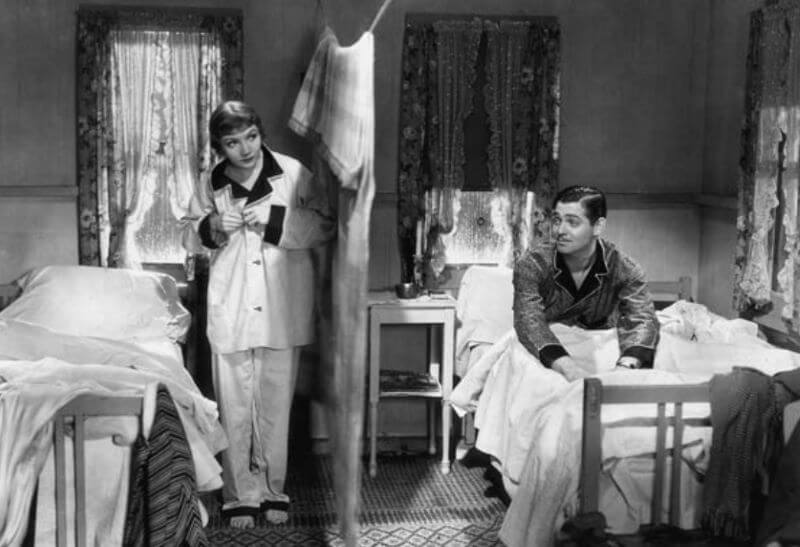
What to Consider
It Happened One Night has been studied from different angles, though seeming it is just a comedy film that showcases the relationship of a daughter of an extremely wealthy father, her rebellion against her father’s disapproval of her fortune hunter fiancé and an unemployed journalist of New York City.
Produced during the Great Depression–one of the blackest chapters of the history of America—the film portrayed the picture hunger of the period when many died of starvation, 110 in 1934, in particular, which of course is not a new phenomenon and still goes on.
One of the reasons the film has been considered one of the best is its focus on social class differences, a struggle between upper and middle-class people. Came from a privileged family, Ellen initially looks down on Peter’s profession as a reporter while Peter deplored her lack of social and survival skills, such as when starving she found it quite strange to eat carrots raw, and not knowing how to dunk doughnut was a fault of the upper-class people. What mattered to her was just money, not humanity.
However, as time passed both of them were able to reconcile their class differences and in the end, indeed love triumphs. She begins to appreciate his intelligence, wit, and integrity. Peter, for his part, initially dismisses Ellie as a spoiled brat but comes to see her as a complex and multifaceted person with her own strengths and vulnerabilities.
Because of her privileged status, Ellen turns out to be an unruly woman, a spoiled child, a property, a desiring heroine, and a powerful virgin, making the themes central to the film. Due to her upbringing, Ellen felt entitled to every public affair and superiority delved into her psyche.
She shows no gratitude to Peter when he tries, unsuccessfully, to catch the man who stole her suitcase during the travel break. Then, during the breakfast break, she missed the bus because she thought the driver would take words for granted disregarding other passengers’ urgencies and punctuality.
She reaffirms all stereotypes about rich people when she offers him money, promising to pay him after she gets to New York, instead of simply asking him for help on the human ground. Peter excitedly expressed his disapproval of her as a “spoiled brat” who thinks only in terms of what she can buy. “I’m not interested in you or your problem. You, your father, King Westley, you’re all a lot of hooey to me”.
As for her refusal to obey her repressive but loving father’s advice not to marry a person who is up to her wealth, the theme of gender roles appears. Some say, by rebellion, Ellen wanted to free herself from patriarchy and refused the burden of the convention by pursuing her own desires challenging the traditional notion of women as passive objects to be controlled by men.
Peter, meanwhile, embodies a more progressive view of masculinity, rejecting the traditional image of the rugged, stoic hero in favour of a more sensitive, empathetic portrayal.
the had immensely influenced popular culture in the 1930s. On their first night in the motel room, Peter’s removal of his shirt exposing his undershirtless bare chest came to represent as real men do not wear undershirts. the effect was so immense that men found it imitated it widely making the undershirt sales drop by 30% nationwide.
For men going without an undershirt was considered sexy because of film and it became a trend. Legend says the sales didn’t recover until World War II when undershirts were required under military uniforms and men became accustomed to wearing them again.
the film also touches on the topic of the increasing divorces in the preceding 10 years due to women’s choices regarding making a living as the New Women or flappers, a subculture of women in the western world in the 1920s when women preferred wearing short skirts, bobbed hair, listening to jazz music and not socially acceptable behaviour.
In addition to its love story, It Happened One Night reflects the state of many of Western culture’s most familiar tales and tropes obvious in the fairytale-like construction of the film where throughout three magical nights, the princess is rescued from the “bad” king, King Westley, by the jaunty hero who is secret heir to a different kind of richness – integrity and love, principles and humanity.
However, the most amusing scene for me was when Peter was giving Ellen a piggyback while crossing a lake. “You show me a good piggybacker, I will show you a real human”, replied Peter to Ellen’s stamen that her father often would give her a piggyback ride.
Peter did not believe rich men can do piggyback rides. Ellen argued that rice people can also give a piggyback ride and called Peter “prejudiced” not to believe that. Peter then let Ellen hold the suitcase for a moment and gave landed a spank on her bum. “Young men in love are never hungry”, is the quotation I ponder.
But one of the most notable metaphors, used in the film is The Wall of Jericho which signifies a historical account of the fact that Israelites attacked the wall of Jericho during the war fought between Israelites and Canaanites.
When the wall fell, the Israelites blew their trumpets. In the film, Peter called the blanket hung on the rope between their beds called The Wall of Jericho to signify the dividing line between the upper and middle class, sexual tensions and their social and economic differences.
But when Ellen and Peter got married, Peter sent a letter to Mr Andrews, “the walls of Jericho are toppling”, denoting, I guess, the collapsing barriers between socioeconomic classes. In the end, the blanket/walls of Jericho finally fell while the sound of a trumpet blared from the motel room of the newlyweds.
Finally, the film is notable for its use of location shooting and naturalistic dialogue. Director Capra and his team avoided the studio-bound approach that was typical of the era, instead filming on location in real-world settings like bus stations, diners, streets and motels. This gave the film a sense of authenticity and closeness that was ground-breaking for its time. To Cinephile, It Happened One Night is just like any other entertaining masterpiece.
Conclusion
It Happened One Night is a timeless classic that continues to captivate audiences with its humour, romance, and insightful commentary on human relationships. Its portrayal of class differences, gender roles, and societal expectations remains relevant today, reminding us of the importance of empathy, understanding, and taking risks in pursuit of our own desires.
Whether you’re a fan of romantic comedies or simply appreciate great filmmaking, It Happened One Night is a must-see film that has stood the test of time.
